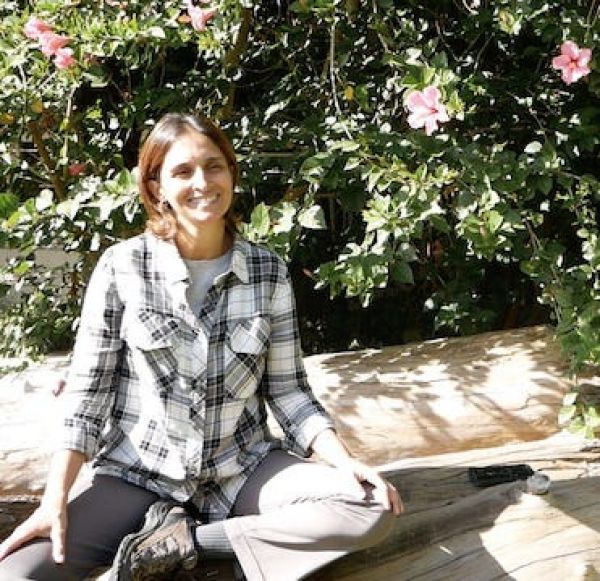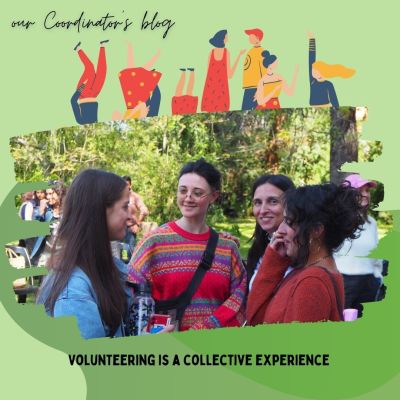The interview took place in Pacheco Community, the gardening and landscaping project where young people can learn to be critical about their work and rights, so they can build their own future together with the community.
Here’s what our volunteers asked Valeria:
Today is Voluntario Global's 13th anniversary. How do you feel about that?
I feel very happy. It is still a challenge to think each day what we want to do with the project and what we want to add. But when you start a project you don't really picture that after more than ten years it’ll still be alive and growing.
Looking back, did you expect Voluntario Global to build such a strong network?
When you start an organization you wish to help the community, to mingle, to understand what is happening and then to create alternatives. Going through the process you realize that the only way to do it is through networking. The networks here are naturals, they are a mean to grow and strengthen yourself in a popular community when you decide to help its people. That's why I think we didn't plan this. We just gathered work, people and organizations around us and, when we looked around, we had created a network.
What are the plans for Voluntario Global in the future?
We always say that the social organizations plan in the long term, but they also plan while they’re walking. Necessities start emerging, there are new problems and we start adapting and planning according to what people want to do, to our surroundings. Sometimes it is the outlook from somebody of the neighborhood, in other times it's the outlook from a volunteer that proposes something and then we redefine our goals. It is never about just one plan. It is about an always-developing plan that can be modified if we all think that’s what’s better for the community.
What would you recommend others that want to start a project like yours?
From Voluntario Global, Comunidad Pacheco and the social organizations we believe that an organization is strong or will be strong and important for the community if for its creation, it works with the people from the territory. If it sits down with the people it wants to help and can define along with them some goals: What do we want to do? Where do we want to start from? What is what concerns us the most? Education, nutrition, health, housing? I think that if someone wants to start an organization they have to sit with the people they want to work with and design a plan with them. That’s the best way to feel useful, feel happy with the community ad be able to help them.
Any last thoughts before we leave?
I believe that when you think about forming an organization it is because you discovered a necessity. You observed a necessity somewhere, whether in your own country or a different country and you’re determined to do something to change that situation, to transform this reality. Discovering this reality, talking about it, telling somebody “I just had this idea! Would you like to join? Let’s go help these people and tell them: we want to help you but let's work together”. This is how I think that volunteers come together. It's about people that want to transform the world into a better place, people from the neighborhood, people from different countries, all of us who live in the world.





